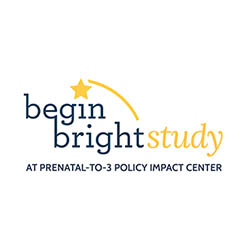Nashville, TN — Since its inception, researchers at the Prenatal-to-3 Policy Impact Center have made it their mission to translate research on state policies with demonstrated effectiveness at creating the conditions in which young children and their families can thrive into policy actions states can adopt.
Policy and programmatic recommendations set forth by the Center are guided by the evidence, but its researchers remain mindful and honest about the limits of the research base. Thus, the Center is kicking off its new Equity Initiative to better understand and account for the inequitable impact of state policies and access to the conditions that promote health and wellbeing for young children of different racial and ethnic backgrounds.
The Robert Wood Johnson Foundation is the Center’s newest funder of the Initiative, committing over $170,000 in support of promoting greater equity among infants, toddlers, and their families.
The Center plans to identify historical and contemporary state policy features that promote equity or exacerbate inequities and determine what specific changes in the design and implementation of the policies states can make to improve access, experience, and outcomes for families of color.
“There are ways that states can promote equity through policymaking and implementation through the authority they have to design, implement, or enforce the policy,” Executive Director, Dr. Cynthia Osborne says.
Policy Director, Abby Lane explains that “the Center plans to identify specific policy levers that states can implement to promote more equitable access, use, experiences, and outcomes for families, to reduce inequities by race and ethnicity.”
The Center intends to hire several Senior Equity Associates who will take the lead on the design and implementation of the new Initiative. In addition to conducting deeper analyses of selected policies areas from the Prenatal-to-3 State Policy Roadmap, the team will also seek ongoing input from content-experts from the field, learn from the work already being done across the country, and be a resource for states as they develop and implement policies that reduce persistent disparities in outcomes in the earliest years.
About the Prenatal-to-3 Policy Impact Center
The Prenatal-to-3 Policy Impact Center, at Vanderbilt University‘s Peabody College of Education and Human Development, translates research on the best public investments into state policy actions that produce results for young children and society. Our team of researchers and nonpartisan policy experts work with policymakers, practitioners, and advocates to navigate the evidence of what works, set priorities, act with confidence, and analyze results for continuous improvement. We help connect the complex social, economic, and health needs of families that support effective child development in the earliest years—seeking effective policies for each and looking at how all can work together for the greatest impact.
About the Robert Wood Johnson Foundation
The Robert Wood Johnson Foundation (RWJF) is the nation’s largest philanthropy dedicated solely to health. Since 1972, RWJF has worked to improve health and healthcare in the United States. We support efforts to build a national Culture of Health rooted in equity that provides every individual with a fair and just opportunity for health and well-being, no matter who they are, where they live, or how much money they have.



